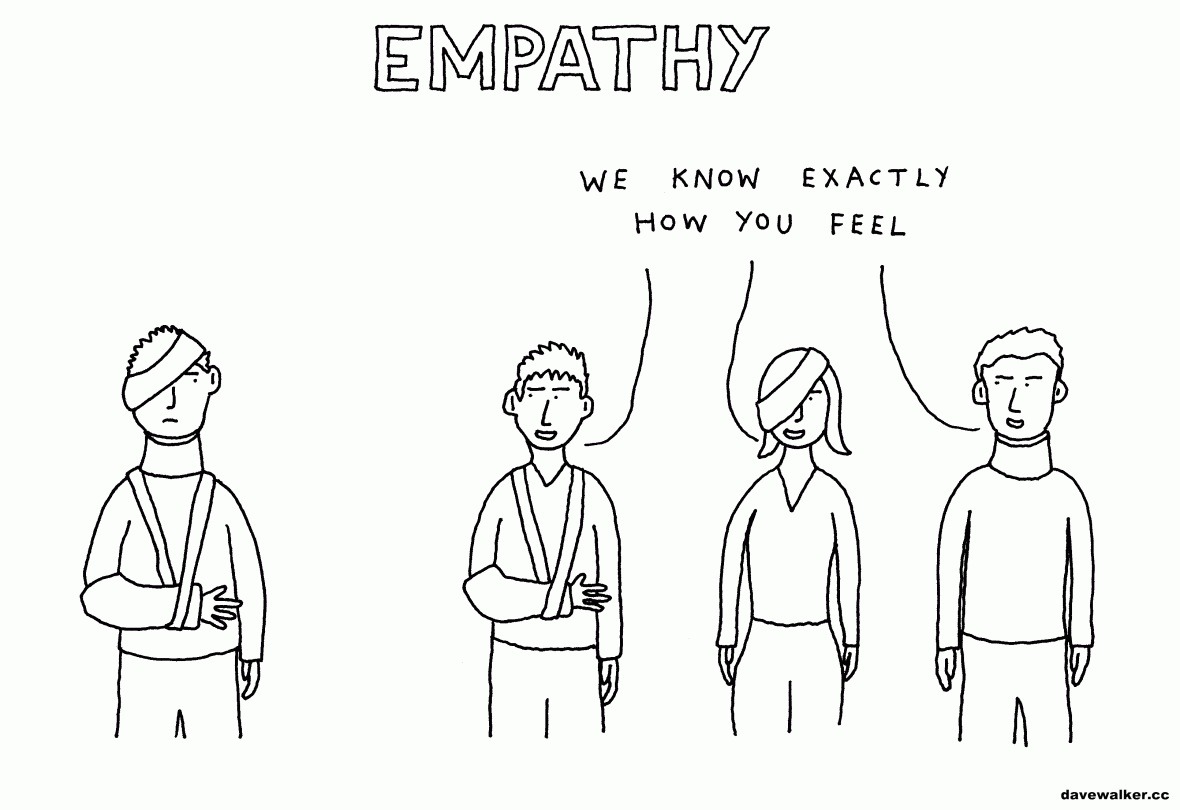Empathy-the psychological identification with or vicarious experiencing of the feelings, thoughts, or attitudes of another.
Dictionary.com makes these definitions seem very textbook when in fact they aren't, well at least one of them. Sympathy is a very standard word, to have a feeling that another person has. Empathy on the other hand gets confused a lot. Many people think that to empathize with someone it is the same as sympathy, but to actually experience what the other peson is feeling. The fact is that this is not 100% true. A person can take something similar that happened to them and apply this to their situation and imagine what it is like for the other person. For example, if your friend just failed the latest math quiz, meanwhile you didn't do your webassign then it is pretty to see what your friend is going through. Sympathy and empathy are very similar to each other. Sympathy and empathy are a lot like rectangles and squares, a square is always a rectangle, but a rectangle is not always a square. When empathizing you are always sympathizing with another person, but when sympathizing, you are not always empathizing.
Empathy is a crucial element for history so historians (or history students and teachers) can read about the past and understand the troubles of the past and why people reacted the way they did.

No comments:
Post a Comment